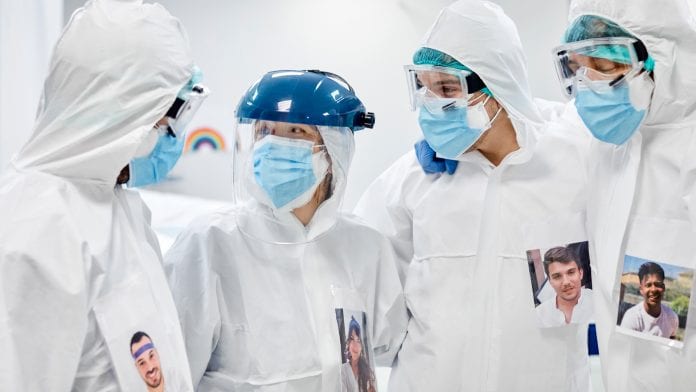
In this article, David Hare, Chief Executive of the Independent Healthcare Providers Network, discusses the need for NHS support in preparation for the winter.
With last December’s election ushering in a solid majority government for the first time in almost a decade and a £32bn funding settlement for the NHS until 2024, most in the health world were looking forward to 2020 as a much-needed year of stability. However, the spread of COVID-19 around the globe put paid to this, placing an unforeseen strain on healthcare systems all around the world (not to mention significant implications for the global economy).
With the initial peak of the pandemic having passed, the health system, including providers in the independent healthcare sector, is now looking forwards to 2021 to ensure it can not only tackle the significant backlog of cancelled treatment, but also be resilient enough to fight off any future waves of the virus.
Safe care for patients
While there’s no doubt COVID-19 has had a devastating impact on thousands of families and communities across the UK, it’s important to acknowledge that the NHS has largely been successful in avoiding being overwhelmed by the virus in the same way that large parts of Europe and Asia have been. This has been in part due to the huge efforts made by NHS England to secure as much capacity as possible so it could deal with any surges in the virus – particularly through forging innovative new partnerships with independent providers.
This is illustrated most clearly by the deal struck back in March which saw all independent hospital capacity being block-booked by the NHS, (including its beds, ventilators, and entire workforce) – all ‘at cost’ with no profit being made during this time. As a result of this historic deal, hundreds of thousands of NHS patients were able to access vital treatment – particularly with regards to cancer care which over half of all the sector’s beds have been used for.
Equally, independent healthcare providers delivering diagnostic, primary and community care have also really stepped up and worked with their local NHS partners to ensure patients can continue to receive treatment in a safe and timely way during lockdown. This includes switching from face-to-face to virtual consultations to repurposing their services to ensure vital NHS care which ordinarily would take place in hospitals can be carried out in the community, and providing ‘hot’ or ‘cold’ COVID-19 sites as needed by the NHS.
Support through winter
These new innovative partnerships are continuing throughout the health service as we move into the winter period and in many ways are jumping out of the COVID-19 frying pan and into the post-COVID fire. The winter months ordinarily represent a hugely challenging time for the health system, and this year these pressures remain with both COVID-19 and the backlog of delayed and cancelled treatments added to the mix.
In anticipation of NHS waiting times growing to a staggering 10 million by the end of the year, NHS England are therefore seeking to build further long-term partnerships with independent providers to work through this backlog. This includes not only extending the historic agreement with independent hospitals which for the vast majority of hospitals will be extended until the end of December, but also launching an ambitious new procurement framework which will see the NHS buy £10bn worth of additional capacity from the sector over the next two years to provide more inpatient and outpatient services, including pathology and imaging, as well as urgent elective care and cancer treatment.
Reinstating care in the community
Equally for independent primary and community care services, there is an unequivocally clear steer that all adult and community services should now be fully reinstated, which independent providers will play a key role in. This sector is, of course, going through a huge transition in light of COVID-19, with the move to a ‘digital first’ approach taking a matter of weeks with the realisation of just how much care can be delivered remotely to fit in with people’s lives.
There is real momentum to ensure that services in the community continue along this more patient-centred trajectory, and as part of this, CCGs and other commissioners are working with independent providers in the sector on a raft of new initiatives around encouraging more self-referrals and developing more online resources such as the “your COVID recovery” website.
As we look towards the winter period and 2021, no one should be in any doubt about the scale of the challenge that faces the health service with providers working flat out just to catch up in many areas. Equally, how healthcare is funded and delivered as efficiently as possible in a world where social distancing and stringent infection control will be the norm for some time will require a huge amount of work.
However, what we have learned from the past few months is that the health system works best when it works as a system – utilising the capacity and innovation from all sectors. As the Health Secretary has rightly said, there are no ‘ideologues’ in a pandemic, and after years of politicking around the threats of NHS privatisation, the pandemic has undoubtedly put to bed many of these mistruths and ushered in a new era of public/private partnerships in the health service which work in the best interests of patients.
David Hare
Guest author
Chief Executive
Independent Healthcare Providers Network








